Recently, Professor Sheng Li, Distinguished Professor of Shandong University, Executive Dean of the Shanghai Cooperation Organization Research Institute, and Taishan Scholar Distinguished Expert, accepted an exclusive interview with China News Service's "East-West Question" column to discuss how the SCO Demonstration Area has built a new platform for international cooperation. The full text is as follows:
Amidst changes unseen in a century, the current global governance system is facing issues such as fragmentation and bloc politics, making it unable to effectively address the challenges brought by these changes. Against this backdrop, regional cooperation is becoming a key to "breaking the deadlock," effectively compensating for the shortcomings of global governance and promoting its transformation from fragmentation to inclusivity.
The Shanghai Cooperation Organization (SCO), as an important regional cooperation platform spanning Eurasia, has seen its influence continuously grow. In 2019, China established the China-SCO Local Economic and Trade Cooperation Demonstration Area (hereinafter referred to as the "SCO Demonstration Area") in Qingdao, aiming to create a new platform for international cooperation under the Belt and Road Initiative and expand cooperation in areas such as international logistics, modern trade, two-way investment, and cultural and tourism exchanges.
Since its establishment, the SCO Demonstration Area has actively explored institutional innovation and platform building, continuously promoted practical cooperation among SCO member states, and gradually become an important hub for economic and trade exchanges among countries, demonstrating an upward trend and cohesive strength. This is not only China's proactive participation in and promotion of regional cooperation through institutional innovation but also a new exploration in building international cooperation platforms and contributing Chinese solutions to global governance.
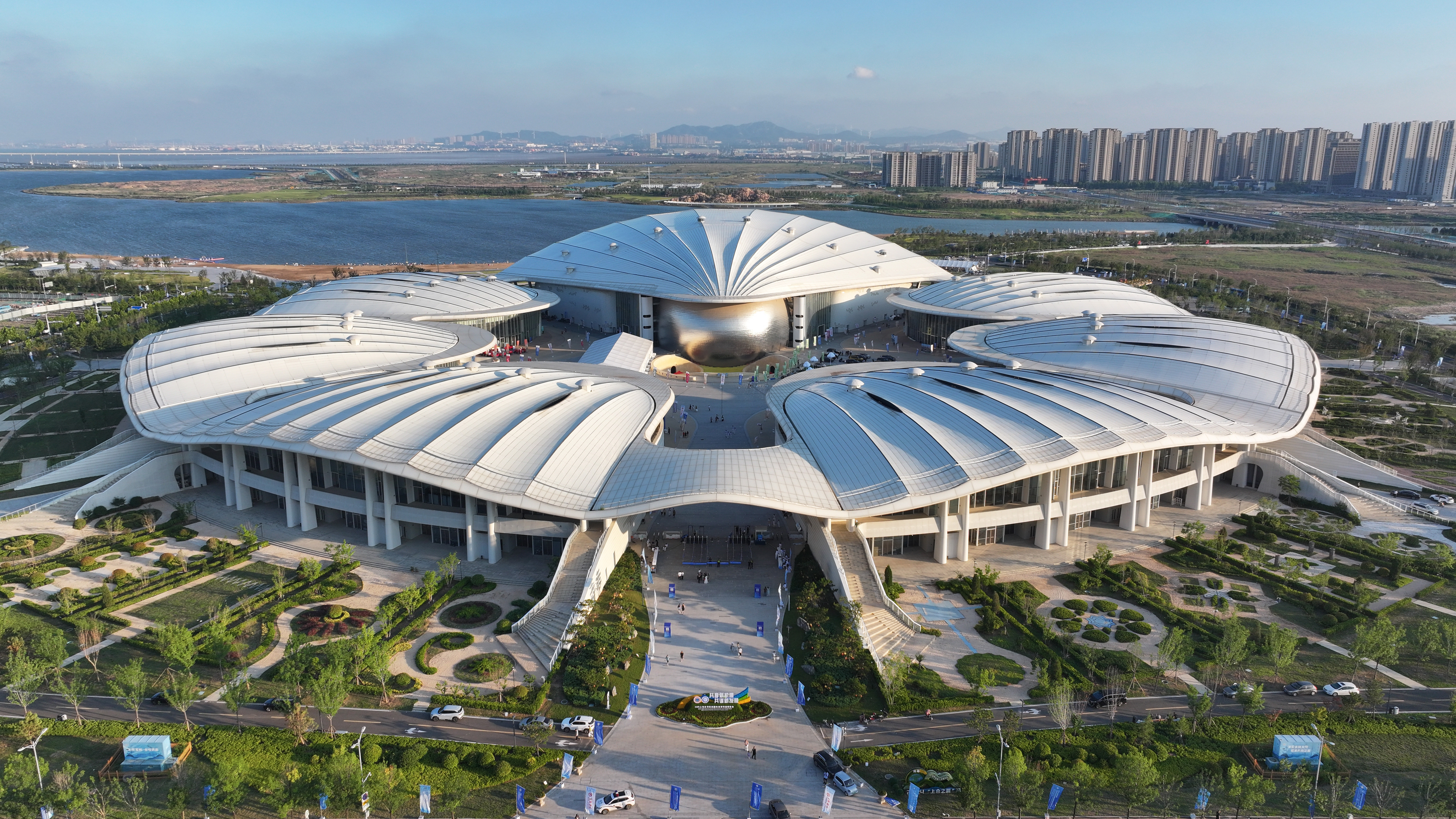
Caption: The Qingdao SCO Pearl International Expo Center located in the SCO Demonstration Area. (File photo) Provided by the Administrative Committee of the SCO Demonstration Area.
Foundational Conditions: Geographical Advantages and Policy Support
Qingdao serves as a major node along the New Eurasian Land Bridge Economic Corridor under the Belt and Road Initiative and a strategic pivot for maritime cooperation. Leveraging world-class port clusters such as Qingdao Port, the SCO Demonstration Area not only boasts extensive land and sea corridors connecting Eurasia but also possesses robust international logistics and hub functions. This has created a natural advantage in linking Eurasia and extending its influence globally.
Furthermore, as a key coastal central city in China and a national hub for advanced manufacturing and modern services, Qingdao has a solid industrial foundation and extensive experience in international cooperation. This provides the demonstration area with strong material conditions and a broad spatial foundation for building an international cooperation platform.
The development direction of the SCO Demonstration Area is highly aligned with the Belt and Road Initiative. It not only acts as a critical driver for promoting more substantive and deeper economic and trade cooperation between China and SCO member states but also undertakes the mission of exploring new models of local economic collaboration and advancing regional economic integration. Backed by policy support, the SCO Demonstration Area benefits from a series of policy advantages, including trade facilitation, investment liberalization, and financial innovation. It has significant room for institutional innovation, regulatory alignment, and policy piloting, making it a model with leading and demonstrative significance.
The China-SCO Local Economic and Trade Cooperation Conference serves as a key vehicle and practical platform for multilateral economic and trade collaboration within the SCO Demonstration Area. It is also a concentrated reflection of the area’s functional implementation and innovative experience. The conference facilitates the efficient cross-border allocation and optimized integration of production factors by showcasing the competitive industries, specialty products, and investment opportunities of member states. On one hand, it promotes the cross-border flow of capital, technology, and talent. On the other hand, it drives the in-depth alignment and integration of regional supply chains and industrial chains, thereby fostering industrial restructuring and upgrading at a deeper level. This optimization of factor allocation not only enhances the comparative advantages of member states and strengthens the complementarity of cooperation but also injects new growth momentum into local economic and trade collaboration. The conference has become not only a "window" for local opening-up but also a "bridge" for SCO countries to share China’s development opportunities, providing replicable practical experience for the local role in multilateral cooperation.
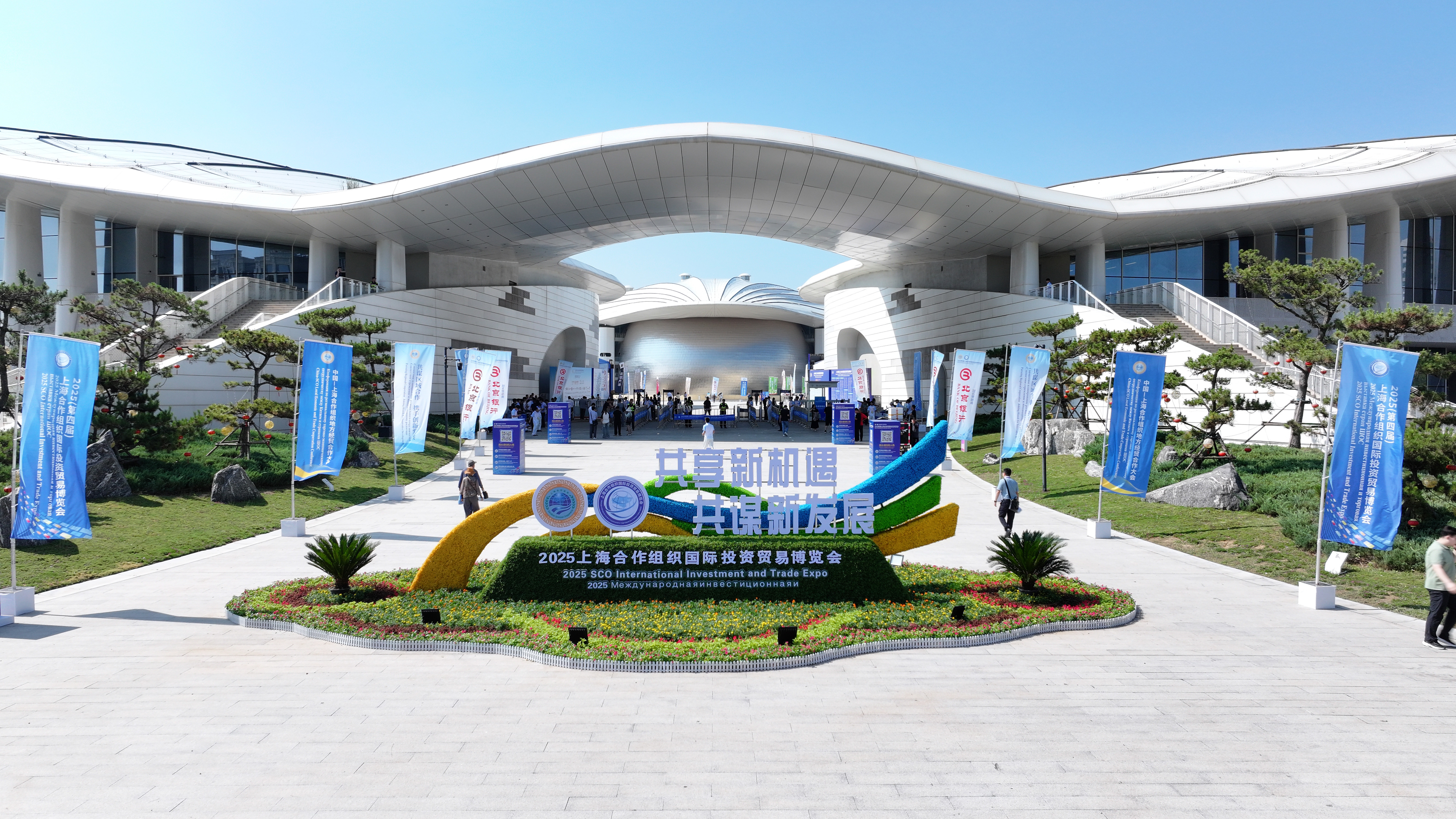
Caption: The 2025 Shanghai Cooperation Organization International Investment and Trade Expo held in the SCO Demonstration Area. (File photo) Provided by the Administrative Committee of the SCO Demonstration Area.
Platform Development: Building the Main Engine of Cooperation
Since its establishment, the SCO Demonstration Area has actively developed platforms focused on facilitating local economic and trade cooperation. It has successfully built several high-end platforms, including the China-SCO Local Economic and Trade Cooperation Comprehensive Service Platform, the "Silk Road E-Commerce" Comprehensive Service Base, and the SCO Institute of Economics and Trade. These initiatives aim to address bottlenecks and challenges in local economic and trade cooperation.
For instance, the SCO Demonstration Area pioneered the creation of China’s first one-stop public service platform for local economic and trade cooperation with SCO countries—the China-SCO Local Economic and Trade Cooperation Comprehensive Service Platform. This platform offers enterprises comprehensive one-stop services covering "trade + customs clearance + logistics + finance" across the entire cycle, all factors, and the entire chain. It has already attracted tens of thousands of enterprises from SCO member states to register and use its services, becoming a digital hub supporting transnational economic and trade cooperation. It has significantly facilitated trade between Chinese and foreign enterprises and effectively enhanced the efficiency and level of trade investment, industrial cooperation, and cultural exchanges.
As a public service platform and pilot model for international e-commerce cooperation, the "Silk Road E-Commerce" Comprehensive Service Base provides SCO member states with a one-stop cross-border e-commerce service system. The base integrates policy innovation, industrial aggregation, and data transformation, effectively addressing pain points such as difficulties in cross-border settlement and slow customs clearance that hinder cross-border e-commerce cooperation. This has greatly improved the efficiency and stability of cross-border e-commerce.
The establishment of the China-SCO Industrial Park Alliance is a significant measure to promote practical economic and trade cooperation within the SCO. The alliance is dedicated to integrating industrial park resources between China and member states. By enhancing coordination and synergy among parks, breaking down regional barriers, and fully leveraging the cooperation potential of all parties in resource endowments and characteristic industries, it injects new momentum into the integrated economic development of the SCO region.
The alliance not only provides SCO countries with practical carriers for investment implementation and industrial clustering but also creates favorable conditions for enterprises in the region to engage in cross-border cooperation and share policy and technological resources. It effectively promotes industrial synergy and complementary advantages among member states, enables the SCO Demonstration Area to exert a radiating and driving effect on a broader scale, and shapes a new paradigm for transnational industrial cooperation. This provides crucial support for building a closer SCO economic cooperation network.
The institutional innovation of the China-SCO Local Economic and Trade Cooperation Conference has broken through the limitations of traditional bilateral trade models, exploring and forming a tripartite cooperation structure of "government building the stage, enterprises performing, and society participating." This has established a cooperation mechanism with multi-country participation and multi-level interaction. The conference not only achieves full-chain connectivity from policy dialogue and rule communication to project implementation but also expands the breadth and depth of cooperation through cross-border integration of "economy and trade + culture + technology + green." These institutional innovations effectively reduce the institutional and transaction costs of transnational cooperation, provide a more flexible and efficient cooperation framework, and significantly enhance the efficiency and resilience of local economic and trade cooperation.
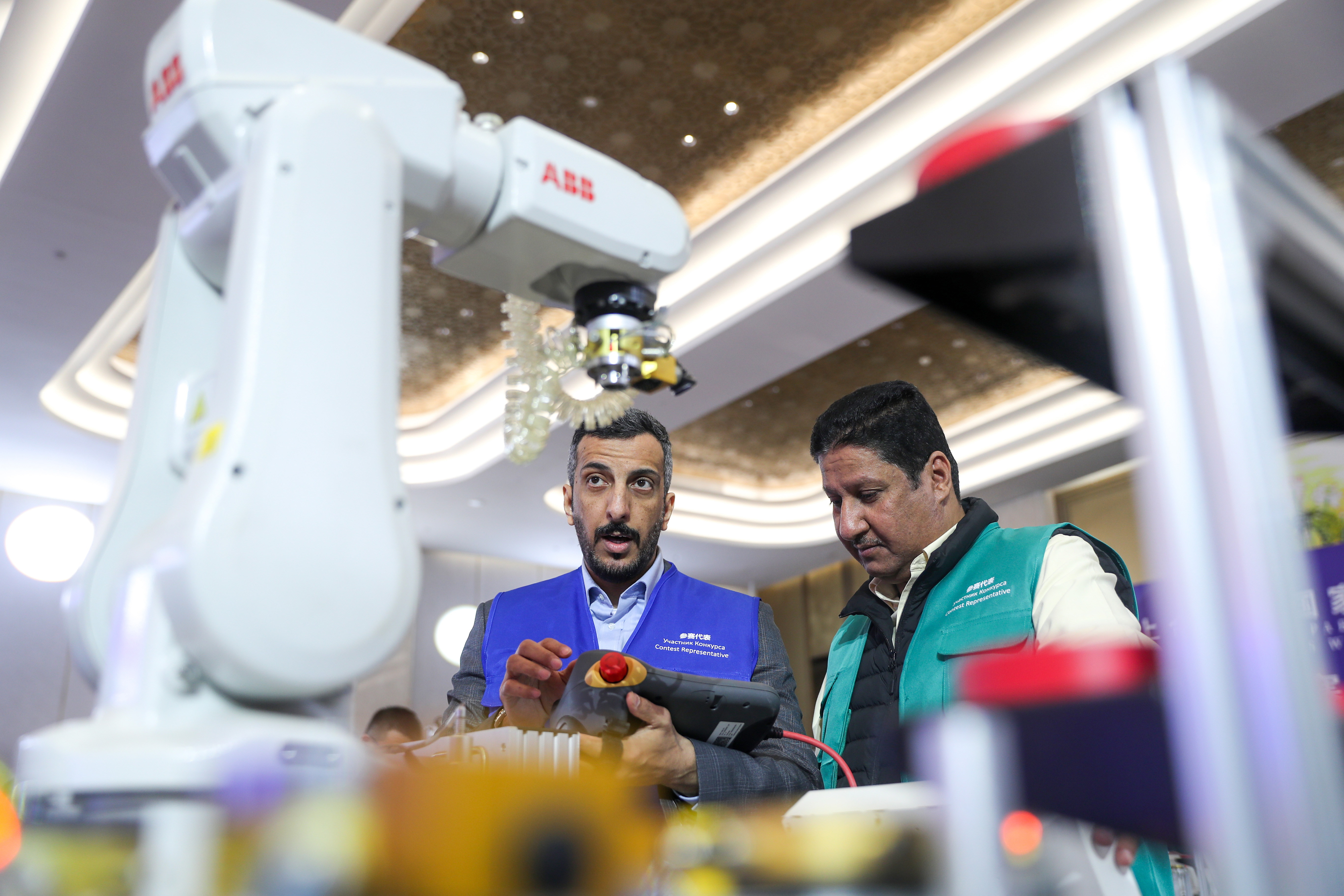
Caption: December 18, 2024: The third SCO National Staff Skills Competition opens in Qingdao, Shandong. The photo shows the industrial robot operation and adjustment competition, with participants debugging robots. (Photo by Zhang Xiangyi/China News Service)
Value Realization: From Local Practice to Contributing the "SCO Solution" to Global Governance
Local economic and trade cooperation plays a foundational and pioneering role in promoting practical collaboration within the Shanghai Cooperation Organization (SCO). The construction of the SCO Demonstration Area is not only a groundbreaking practice by China to advance local economic and trade cooperation under the SCO framework but also a valuable exploration of new models of international cooperation amid complex and ever-changing global circumstances.
The development experience of the SCO Demonstration Area demonstrates that local economic and trade cooperation can serve as a convergence point between major-country strategies and regional collaboration, enabling member states to achieve deep integration in specific projects and industrial sectors. This fosters a mutually beneficial and win-win cooperation paradigm. This model has not only facilitated trade and investment exchanges among SCO member states and promoted the alignment of cross-border industrial and supply chains but, more importantly, injected new vitality into the entire SCO cooperation system. It provides a replicable and scalable experience sample, demonstrating strong spillover effects.
Looking ahead, as the SCO continues to grow and the Belt and Road Initiative advances, local economic and trade cooperation will face broader development opportunities. Particularly in emerging fields such as green development, the digital economy, and industrial upgrading, it will play an increasingly strategic role.
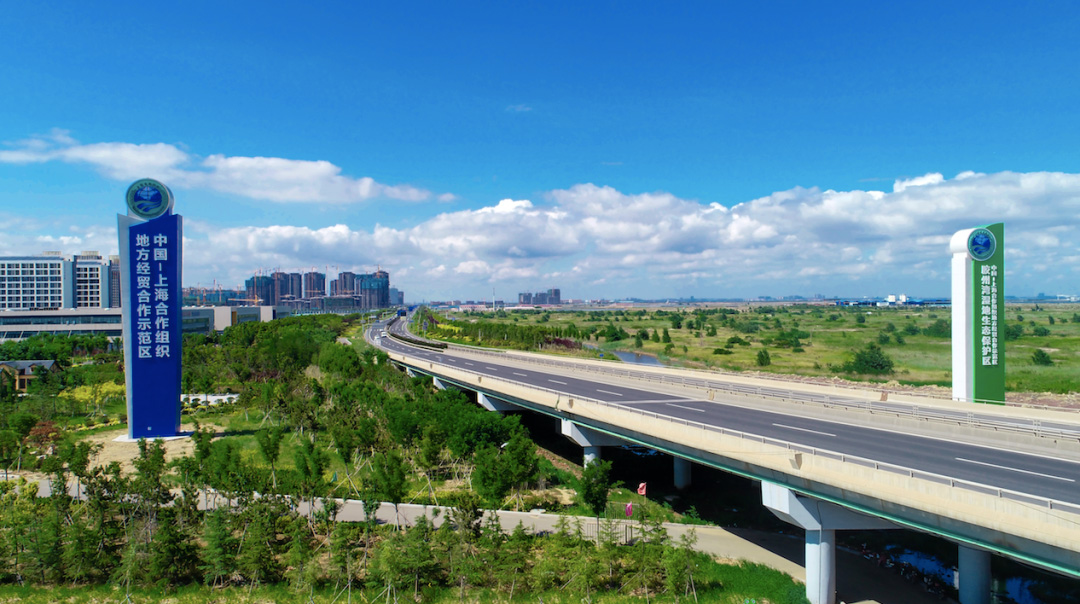
Caption: Roads within the SCO Demonstration Area. (File photo) Provided by the Administrative Committee of the SCO Demonstration Area.
The vast market space and abundant resource endowment of the SCO provide a solid foundation for the SCO Demonstration Area to deepen industrial alignment, enhance connectivity, and promote local economic and trade cooperation. The SCO Demonstration Area will play a more active role in advancing regional economic integration, promoting multilateralism, and deepening cultural exchanges and mutual learning. It will serve as an important platform for China and SCO countries to jointly pursue development and share opportunities, contributing the "SCO Solution" to building an open world economy. (End)
Author Biography:
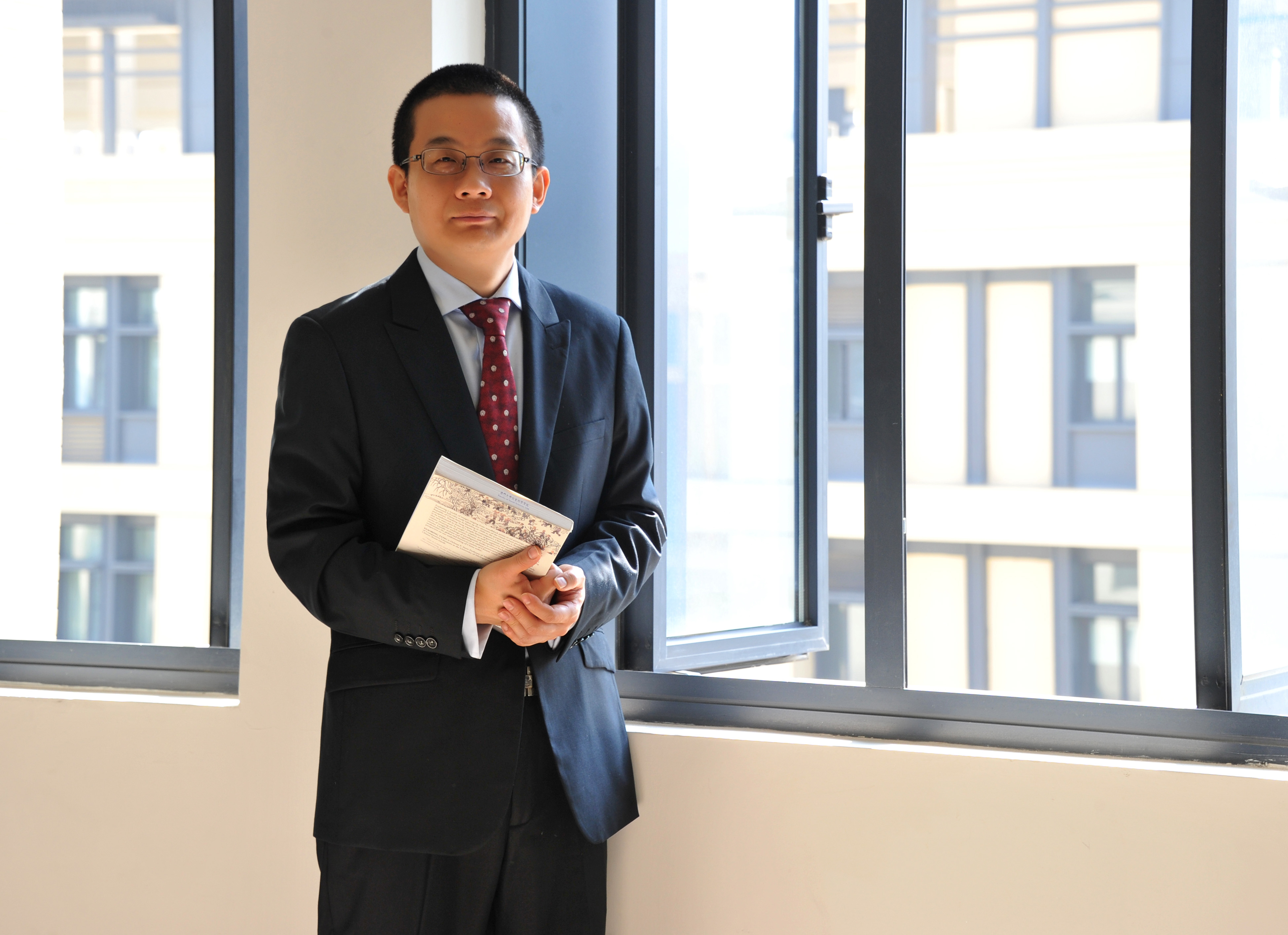
Sheng Li. Photo provided by the author.
Sheng Li is a Distinguished Professor at Shandong University, Executive Dean of the Shanghai Cooperation Organization Research Institute, and a Taishan Scholar Distinguished Expert. He has long been engaged in research on international political economy and tourism city governance, having published over a hundred papers in international academic journals in related fields and 12 foreign-language monographs. He is a recipient of the Second Prize of the Higher Education Scientific Research Outstanding Achievement Award (Humanities and Social Sciences) by the Ministry of Education and the "China New Development Award" established by the internationally renowned academic publisher Springer Nature.
[Author: Sheng Li Photography: Source: China News Network Editor: Liu Mingjie, Liu Xuan]
